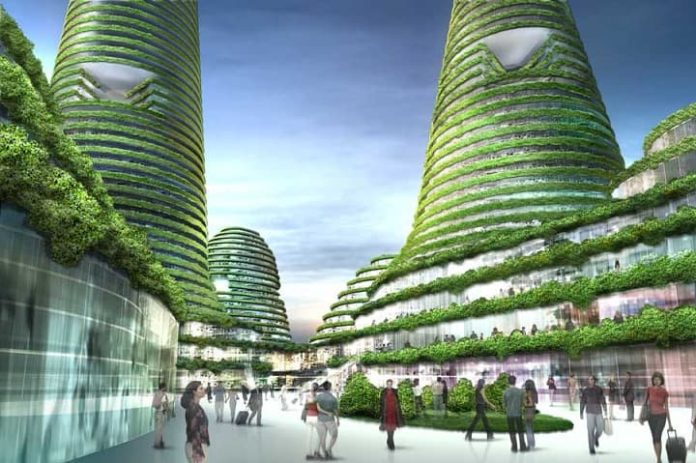“Green engineering” stands as the paramount imperative, as articulated by President Droupadi Murmu during her address to the Military Engineer Services (MES) officers. She beseeched them to undertake the construction of environmentally conscious and sustainable edifices, thus championing the utilisation of renewable energy sources. The wise words from President Murmu are timely and of utter importance in the present scenario. With over 1.4 billion inhabitants and finite resources, a discernible transformation is occurring in the real estate sector. With the forecast of energy consumption soaring to 4 trillion units and many cities facing potential water scarcity within a few years, the real estate industry has to innovate this sector to mitigate the repercussions of climate change. This is where the concept of ‘Green Construction’ assumes a pivotal role. Green construction plays a pivotal role in diminishing the carbon footprint, adverse environmental impacts, and the preservation of dwindling resources like water and energy. It concurrently strives to enhance indoor air quality by employing eco-friendly materials, thereby fostering ancillary societal benefits such as improved health and heightened work productivity.
When juxtaposed with conventional Indian structures, green buildings, accredited by the Indian Green Building Council, yield significant water and energy savings of 20-30% and 40-50%, respectively. Furthermore, they curtail construction expenses for developers while augmenting property values. The need is to implement eco-sustainable and resource-efficient design principles across a building’s entire lifecycle, encompassing planning, design, construction, maintenance, renovation, and demolition. Diverging from traditional edifices, green buildings employ eco-friendly, reusable materials to minimise resource waste and environmental carbonization. Additionally, the equipment and appliances used within are energy-efficient and operate on solar or wind power, thereby mitigating daily carbon emissions at an individual level.
The President emphasised the paramount significance of employing cutting-edge technologies across all domains, particularly within the engineering realm. The notion of green engineering aligns with the Government’s concerted efforts to substantially curtail carbon emissions. Prime Minister Modi has demonstrated an unwavering commitment to this cause, with a particular emphasis on favouring eco-friendly approaches, albeit at an initial cost premium but with enduring benefits. A primary thrust is directed towards harnessing solar energy and other sustainable resources such as wind and geothermal energy, with the overarching objective of positioning India on par with developed nations in the realm of environmental sustainability. It is important to underscore that these aspirations are long-term in nature, as the establishment of such infrastructure necessitates a substantial temporal commitment.
The armed forces have consistently played a vanguard role in addressing issues of national significance. Military cantonment areas are consistently exemplars of development, characterised by a dedicated commitment to preserving the environment. Moreover, military installations are steadfastly devoted to nurturing and sustaining lush greenery. It is also worth noting that the military’s ever-expanding infrastructural requirements necessitate a proclivity towards green engineering, which stands poised to exert a profoundly positive influence on our climatic ecosystem. This is vividly evident in the ongoing development of extensive thoroughfares, fortified shelters, and residential undertakings initiated by the armed forces. Numerous military initiatives are situated in mountainous terrain, making the adoption of green engineering not only a prudent choice but a compelling imperative in consonance with the exigent environmental conditions. The implementation of green engineering practices has the potential to transform the environment over the long term, fostering judicious water conservation practices.
President has imparted a resounding message that ought to be embraced by every citizen, even in the course of erecting personal residences, apartments, or housing colonies. The reverberations of climate change will inevitably affect every citizen, sooner or later. The prevailing usage patterns of our finite resources are patently unsustainable, making it imperative to adopt reusable materials, harness energy efficiency, and employ water-conservation methodologies. This concerted effort is essential for fostering an improved standard of living in India’s future.
Trending Now
E-Paper


